|
It seems that each day we check the news to discover that another politician, producer, actor, or celebrity figure is being exposed for scandal or abuse. Many of those who have for years been hailed as the main influencers of public opinion, policy, and taste have in a stunningly short span of time lost support or credibility. Many of those who were on top of the world have been, we could say, deflated and dethroned. I have been pondering this lately as the Church prepares to celebrate the Solemnity of the Ascension of the Lord. Each Sunday in the Nicene Creed, we profess Christ’s ascension, “He ascended into heaven and is seated at the right hand of the Father.” The ascension is recounted at the beginning of the Acts of the Apostles (Acts 1:6-12). Theologically, we do not envision Jesus ascending like a balloon into the sky, but a king ascending a throne. The Feast of the Ascension celebrates the exaltation and enthronement of Jesus as King and Messiah at the right hand of God the Father in heaven. As many of us may be scientifically literate and democratically-minded citizens of the twenty-first century, we may think all this talk of thrones and kings and heaven may seem like it belongs to a world that has long passed away. But if our recent headlines have proven anything, what has not passed away is the perennial pursuit of power and our tendency to underestimate our willingness to use it in potentially harmful and self-aggrandizing ways. Power in and of itself is not an evil thing, and watching people fall publicly is not a cause for celebration. I think instead the present reality invites us to pause and reflect on—in light of God’s reality—the pursuit and exercise of power both in society and in our own lives. In truth, power is not something that belongs only to the powerful. Power exists across any human relationship: husband and wife, parent and child, teacher and student, boss and employee, and the list is endless. We are influenced vertically by our superiors and horizontally by our peers. Ideally, we work together to achieve the common good and common goals by sharing and exercising power in the right doses and ways. But I think if we’re honest, we all have our own way of being out of balance, tipping the scales. So, what does this all have to do with Jesus, who we call the All-Powerful One? As exalted King and Messiah, Jesus overthrows the love of power with the power of love. The Ascension is not a power grab that Jesus will use to control people and outcomes. Rather, we hear Jesus tell the disciples that once he has taken his seat on God’s throne, “you will receive power when the holy Spirit comes upon you, and you will be my witnesses in Jerusalem, throughout Judea and Samaria, and to the ends of the earth” (Acts 1:8). As disciples, we are not separated from Christ by a glass ceiling. Yet as disciples, we have to be careful where and how we exercise this power given to us in the name of Jesus. One of the images in Scripture of the Holy Spirit is fire. It is a great metaphor for power. Our stewardship of God’s power can bring light and warmth, yet it can also burn if used irresponsibly. I suspect today that much of what compromises our evangelizing message of Jesus’s kingship stems from the ways Christians have abused earthly power in the name of God. The Gospel and St. Paul preach a radically different alternative: the conviction that our human exercise of power more fully manifests Christ when it is surrendered than when it is wielded. So, I propose instead: What happens when we dare to profess Jesus enthroned and exalted, to receive the power of his Holy Spirit, and then lay it down in the service of the Gospel? Question for Reflection: How is Christ’s example of kingship and power different from what we see in the world?
0 Comments
I had my third baby in the spring, during the first phase of our area’s government-mandated shutdowns. As with my previous two children, I often found myself tiredly scrolling through social media during countless midnight nursing sessions. And everywhere I looked, I saw discord. Strangers on the internet “crushed” each other with one-liners, ignored or belittled those with whom they disagreed, and twisted the meaning of words to suit their argument’s ends. But I also saw members of local church communities getting into heated arguments that were exacerbated by the email writers’ inability to see each other and hash out their ideological disagreements in person. “Is civil discourse completely dead?” I wondered to myself.
It’s easy to think that if we just say the right thing at the right time our interlocutor will see the error of their thinking and agree with our side of the argument, or that if we pummel our interlocutor with the harsh and unadulterated truth that they will be overwhelmed and converted like St. Paul on the road to Damascus. The ability for everyone to have a voice in the public square via social media and to be able to interact with virtually anyone, at virtually any time, on virtually any topic, has warped our society’s self-control about when, and how, and about what to offer an opinion. Appropriately for this topic of charitable dialogue, today is the feast day of St. Thomas Aquinas, thirteenth-century philosopher and theologian and one of the greatest minds the Catholic Church has ever known. He was exemplary in his efforts to understand and articulate opposing viewpoints and to be thorough and charitable in his defense of faith through reason. Each broad topic he addresses in the Summa Theologiae, his magnum opus, is broken into more specific questions, which are broken into even more specific questions called articles, and for each of these articles Aquinas offers well-thought-out objections before he states his own thesis and then replies to each individual objection. What a difference from our modern culture that is steeped in out-of-context sound bites, Twitter smackdowns, unnecessary generalizations, and logical fallacies! If our calling as followers of Christ is to reflect Christ for others and to evangelize, we ought to be intentional about how we may be the face of God for someone else. If I am the only Christian someone is going to encounter that day—be it in line at the grocery store or on a Facebook comment section—how would I want that experience to be? Sometimes I need to remind myself that no matter how willfully defiant my child is being, no matter how obtuse my acquaintance’s social media post is, that they are unconditionally loved by God, and I am called to love them too. Personally, I have learned not to engage at all in a potential argument on social media. And when I do have disagreements with others, like St. Thomas Aquinas, I try to make sure that I understand the scope of my opponent’s reasoning and what he or she is actually trying to argue before I respond. It is possible to be charitable toward and understanding of others without abandoning the Truth or condemning everyone around us. Perhaps most importantly, I have learned that the virtual world of the internet and social media is best when used to support our lives and relationships in the real world, not as a replacement for them. As we continue into this new year of 2021, I encourage you to think about how you can charitably engage with those you may not agree with. May we look to the model of St. Thomas Aquinas as we seek to evangelize today’s culture with love. Today we celebrate the feast of our Founder, St. Vincent Pallotti, a day of prayer and blessings for the entire Pallottine Family. How fortunate we are to have St. Vincent right in our midst even after 170 years of his death. Today we wish to pray to God through his intercession for the entire world afflicted by the sorrows of the Coronavirus pandemic, and for all those who are sick and have lost their lives. Above all, we pray for all those who have lost their hope. Especially present in our hearts as we celebrate this Holy Mass are the deceased and sick members of our Pallottine Family. The topic entrusted to me for our reflection today is “The Pallottine Family in the footsteps of St. Vincent Pallotti in service of the fraternity in the world”. Indeed, a beautiful and relevant theme. St. Francis of Assisi was known as a mystical saint who believed in universal fraternity. His concept of fraternity involved not only the human race but also God’s entire creation, hence his composition, the Canticle of Creation. He thanked God for brother sun and sister moon, for brother wind and sister water; concluding by saying, “I praise and bless you, Lord, and I give thanks to you, and I will serve you in all humility”. It’s this extraordinary saint who continues to inspire millions of people around the world. In a special way, Pope Francis continues the mystical way of St. Francis of Assisi. He bears not only his name but also his spirit. Pope Francis realised that it is only a return to the Gospel way, following a life of simplicity and poverty of the “poverello di Assisi”, that can truly make us disciples of Jesus. He understood that touching the poor meant touching the flesh of Christ; On the face of every child, we see the face of Child Jesus. In the downtrodden and the despised, we meet Jesus on the cross. Like St. Francis, our Holy Father believes in the universal fraternity of humankind and entire creation. His two Encyclicals, “Brothers and Sisters All” and “Laudato Sì”, are the fruits of these fraternal convictions, and totality of Creation. In “Brothers and Sisters All”, Pope Francis says, “This saint of fraternal love, simplicity and joy prompts me to devote this new Encyclical to fraternity and social friendship. Francis felt himself a brother to the sun, the sea and the wind, yet he knew that he was even closer to those of his own flesh. Wherever he went, he sowed seeds of peace and walked alongside the poor, the abandoned, the infirm and the outcast, the least of his brothers and sisters” (n.2). The Roman saint and mystic, Vincent Pallotti, is another prophetic figure who believed and promoted universal fraternity. He is a saint of the infinity, the universal soul, who remained in mystic union with God and his whole creation. Though mostly limited to Rome’s geographical boundaries, his horizon embraced the infinity of God’s love and mercy and all creation. The celebration of the Octave of Epiphany was, for example, the manifestation of the universal spirit of this Roman mystic. Universal fraternity is rooted in some fundamental anthropological and spiritual principles. First, it is a recognition of the Lordship of God as our loving Father/Mother and the Creator of all that has come into being. Second, we are all God’s children, created in his own image and likeness, precious and honourable. The whole of creation manifests the glory and infinite wisdom of God. Third, in His infinite wisdom, God has made us interconnected and we realise ourselves in being related to each other and in living and working together in communion and harmony. Fourth, all God’s children have equal right and dignity to enjoy the fullness of life promised by God through Jesus. Likewise, every created being has the right to develop and reach its fulfilment. This means we need to respect God’s creation and not manipulate and plunder it for our egoistic motives. The question before us is: how can we, as members of the Pallottine Family following the footsteps of our holy Founder, live and promote universal fraternity. I wish to point out three concrete ways, based on the three readings of today. The first reading, from the book of Isaiah, speaks of the importance of fraternal charity as a genuine way to become God’s children and manifest His glory. The words of the prophet are very clear and strong: “Is not this the sort of fast that pleases me…to share your bread with the hungry, and shelter the homeless poor, to clothe the man you see to be naked…Then will your light shine like the dawn and your wound be quickly healed over” (Isaiah 58: 6-8). Pope Francis, in “Brothers and Sisters All”, takes the parable of the Good Samaritan to show the importance of reaching out to men and women who have fallen on the other side of the street. The Pope says, “Jesus tells the story of a man assaulted by thieves and lying injured on the wayside. Several persons passed him by, but failed to stop. These were people holding important social positions, yet lacking in real concern for the common good. They would not waste a couple of minutes caring for the injured man, or even in calling for help. Only one person stopped, approached the man and cared for him personally, even spending his own money to provide for his needs. He also gave him something that in our frenetic world we cling to tightly: he gave him his time. Certainly, he had his own plans for that day, his own needs, commitments and desires. Yet he was able to put all that aside when confronted with someone in need. Without even knowing the injured man, he saw him as deserving of his time and attention” (n. 63). His Holiness then gives us this message: “The parable eloquently presents the basic decision we need to make in order to rebuild our wounded world. In the face of so much pain and suffering, our only course is to imitate the Good Samaritan. The parable shows us how a community can be rebuilt by men and women who identify with the vulnerability of others, who reject the creation of a society of exclusion, and act instead as neighbours, lifting up and rehabilitating the fallen for the sake of the common good. At the same time, it warns us about the attitude of those who think only of themselves and fail to shoulder the inevitable responsibilities of life as it is” (67). Here is then the first key to build up a universal fraternity: “a community can be rebuilt by men and women who identify with the vulnerability of others”. In the second reading, St. Paul shows us that love alone can be the foundation of our life and every action. Hence why our Founder chose his motto Caritas Christi Urget nos. Since God is love, where there is God, there will be fraternal communion. Human organisations and juridical bonds can help us to some extent. It’s only genuine fraternal love, rooted in the mystical experience of God, like our Founder, can create and strengthen communion, and indeed the Union of Catholic Apostolate. The General Statutes, speaking of the spirituality of its members, says, “The specific spirituality of the Union is the following of Christ, Apostle of the Eternal Father. In faith and in charity the members of the Union are determined to remain united with the crucified and risen Christ ever present among them (cf. Mt 18,20).; they strive to imitate his love for the Father and for all persons, seeking to live his life-style and apostolate as perfectly as possible” (n.19). Genuine love of God flows into authentic fraternal love, as Pope Francis says, “Life without fraternal gratuitousness becomes a form of frenetic commerce, in which we are constantly weighing up what we give and what we get back in return. God, on the other hand, gives freely, to the point of helping even those who are unfaithful. There is a reason why Jesus told us: “Without cost you have received, without cost you are to give” (Mt 10:8) (Brothers and Sisters All, n. 140). As members of the Pallottine Family, we will be united when we forget ourselves and give ourselves to God and our fellow beings gratuitously. The Gospel passage that we have heard speaks about our missionary mandate. The Lord appointed seventy-two others and sent them out in pairs to towns and villages. Carry no purse, no sandals. Cure those who are sick and say, “The Kingdom of God is very near to you”. As our Founder taught us, we are all missionary disciples of Jesus. Our mission is to form others to become genuine apostles of Jesus, always in service of the mission of the Church. What has truly inspired and strengthened me during these years as Rector General is the passion for the mission, especially for those of the periphery. I have experienced what the Gospel says today, “the harvest is rich but the labourers are few, so ask the Lord of the harvest to send labourers to His harvest”. There are too many people waiting outside in the world, for the Gospel message, for compassion, for bread and healing. There are too many people going to bed hungry; there are millions of little children thrown on the streets without food and the minimum of security; there are too many women carrying heavy loads on their head, together with their babies on their back. What sense does it make to spend hours in feasting when millions around the world go hungry? We as Christians and consecrated persons will lose our saltiness when we lack radicality in our following of Christ. If many young men and women do not find meaning in being a Christian or a consecrated person, it is a clear indication that worldliness and comfortable living have conquered us and we do not live the radical spirit of the mission. On the other hand, the thousands of men and women of all walks of life working in the peripheries find much joy of the Gospel. There the Church of Christ will live. This is what our Founder, St. Francis of Assisi and all the saints have shown us. Radical living of the Gospel: this is the real challenge before us. Dear brothers and sisters of the Pallottine Family, present here in our Church, and those who are following this Mass through the Internet, let us work towards genuine fraternal and universal communion among us. This is possible when we are focused not on ourselves and not even on our charism, but on God and his people all over the world. As said above, first of all, we need to become compassionate and caring especially of the most needy people among us. During this time of the pandemic, our compassion must be translated to the most concrete actions of spiritual and corporal acts of mercy. This is what our Founder did on the streets of Rome. Bread for the hungry, water for the thirsty. Medicine for the sick. Secondly, we need to become more and more God-centered persons and not only organisers of meetings and projects. With all our discussions and planning, if we have no time for prayer, for God, we will become only empty sounding gongs. Finally, we need to move out of ourselves and must get rid of our worries only of survival. We are all sent. I am a mission and we are a mission. We are instruments of God’s love, the channels of the compassion of Jesus and ambassadors of the Holy Spirit, the renewing and creative spirit of God. It’s proper to conclude this homily with the prayer for universal fraternity given at the end of the Encyclical Brothers and Sisters All - A Prayer to the Creator: Lord, Father of our human family, you created all human beings equal in dignity: pour forth into our hearts a fraternal spirit and inspire in us a dream of renewed encounter, dialogue, justice and peace. Move us to create healthier societies and a more dignified world, a world without hunger, poverty, violence and war. May our hearts be open to all the peoples and nations of the earth. May we recognize the goodness and beauty that you have sown in each of us, and thus forge bonds of unity, common projects, and shared dreams. Amen. To learn more about St. Vincent Pallotti, please click here. For more resources on Pope Francis's encyclical, Fratelli Tutti, please click here. “If we are truly animated by the spirit of love, we shall always treat all with love, look on all with love, think of all with love and speak of all with love.” – St. Vincent Pallotti What does it mean to be “animated by the spirit of love?” Jesus said to his disciples that his commandment is “love one another as I love you” (John 15:12). If we believe ourselves followers of Christ, then we must follow this commandment. St. Vincent Pallotti, whose feast day is today, gives us how we do that – treat, look, think, and speak of ALL with love. That is where the challenge is – to do it for all. Pallotti understood that our love, seen as charity, is universal. Pope Francis reminds us in his Encyclical, Fratelli Tutti: “People can develop certain habits that might appear as moral values: fortitude, sobriety, hard work and similar virtues. Yet if the acts of the various moral virtues are to be rightly directly, one needs to take into account the extent to which they foster openness and union with others. That is made possible by the charity that God infuses. Without charity, we may perhaps possess only apparent virtues, incapable of sustaining life in common” (91). Civil and ecclesial unrest, including revolution, as well as pandemic were common things in the Rome of St. Vincent Pallotti’s day in the first half of the nineteenth century. Yet, it did not stop him from recognizing the call of all believers in Christ to go forth as his apostles and witness God’s infinite love to a world that so desperately needed to experience it. Today is no different. We are called to do the same. May the charity of Christ urge us on!
Tomorrow, we celebrate the birthday of St. Vincent Pallotti, patron of the Catholic Apostolate Center and founder of the Union of Catholic Apostolate. St. Vincent Pallotti was born on April 21, 1795. How appropriate for the saint who lived and worked in the city of Rome to share his birthday with the traditional date for the founding of the city. To help celebrate his birthday, I have put together a list of some of his more interesting achievements and activities during his life. I hope that you too will be inspired by his life. 1) The Baptism of St. Vincent Pallotti St. Vincent Pallotti was baptized on April 22, 1795 in the St. Lawrence Church in Rome. This began his life in the church. 2) St. Vincent Pallotti on Holiday On his arrival in Frascati around 1805, St. Vincent Pallotti exchanged his new shoes for that of a poor boy. Giving away his new clothing to the poor would become a lifelong habit for the saint. 3) St. Vincent Pallotti Makes a Prediction While speaking with the young Giovanni Mastai-Ferretti in 1817, St. Vincent Pallotti predicted that he would one day be elected to the papacy. Mastai-Ferretti was elected Bishop of Rome on June 16, 1846. 4) St. Vincent Pallotti the Professor St. Vincent Pallotti was awarded two doctoral degrees in both theology and philosophy in 1814 and 1819. Teaching was one of the favorite activities of the saint. 5) St. Vincent Pallotti Showing Courage During the cholera epidemic of 1837, St. Vincent Pallotti organized a barefoot procession of religious. This action was penitential and showed that they were not afraid of the disease. 6) Catholic Apostolate Received Church Approval St. Vincent Pallotti received approval for the Catholic Apostolate from the Church in 1835. Pallotti also received support for the Catholic Apostolate from Pope Gregory XVI when others objected to it. 7) St. Vincent Pallotti the Chaplain Beginning in 1838, St. Vincent Pallotti served as a prison chaplain in Rome. He often worked with the condemned, saving many souls. He had a true willingness to serve all, especially the poor and the marginalized. 8) St. Vincent Pallotti the Peacekeeper St. Vincent Pallotti stopped a riot in the Trastevere neighborhood of Rome. He implored the people to stop rioting by showing them an image of Mary, Mother of Divine Love. 9) St. Vincent Pallotti Preaches one Last Time On the last day of the octave of the Epiphany in 1850, St. Vincent Pallotti gave his final sermon. 10) St. Vincent Pallotti Dies In 1850, St. Vincent Pallotti gave his final blessing to his followers. He showed great courage even in the face of death. There are many more stories about St. Vincent Pallotti that you may find interesting. Check out our St. Vincent Pallotti Portal to learn more about our patron and his many works. "Commitment to ecumenism responds to the prayer of the Lord Jesus that 'they may all be one' (Jn 17:21). The credibility of the Christian message would be much greater if Christians could overcome their divisions and the Church could realize 'the fullness of catholicity proper to her in those of her children who, though joined to her by baptism, are yet separated from full communion with her' We must never forget that we are pilgrims journeying alongside one another. This means that we must have sincere trust in our fellow pilgrims, putting aside all suspicion or mistrust, and turn our gaze to what we are all seeking: the radiant peace of God’s face” (Evangelii Gaudium, n. 244). Over the nine years that I was at St. Jude Shrine in Baltimore, Maryland, I had the opportunity to participate in and then to host an annual prayer service for Christian Unity. It became a very popular celebration and leaders from various Christian communities participated, including the Archbishop of Baltimore. To me, though, the most important people who participated were the people who went week to week to their faith communities in various parts of Baltimore, but never had the opportunity to pray together with Christians from other communities. Prayer is powerful and to underestimate its power to unite us leaves us lacking in the virtue of hope. Such hope is not naïve, but is based on firm trust in the work of the Holy Spirit. The annual Week of Prayer for Christian Unity will begin on Saturday, January 18th and conclude on the Feast of the Conversion of St. Paul on January 25th. Year after year, Christians are invited to pray that “they may be one.” St. Vincent Pallotti, patron of the Catholic Apostolate Center and founder of the Union of Catholic Apostolate, worked diligently for unity in the Church, using the liturgical Octave of the Epiphany in Rome as a means to unite in prayer members of the Eastern and Western traditions of the Catholic community who were rather disconnected from one another. This celebration was held in the city of Rome from 1836 until 1968. His feast day, on January 22nd, is in the middle of the Week of Prayer for Christian Unity. Collaboration of all Christians can lead us toward Pallotti’s vision, hope, and prayer that one day we may be “one fold, under one Shepherd, Jesus Christ” (Cf., Jn 10:16) Since our mission as the Catholic Apostolate Center is derived from the charism of St. Vincent Pallotti, who fervently prayed for such a day, we invite you to pray not only individually, but draw other Christians together in prayer. Prayer, though, is not the only thing that we can do. We can learn more about what the Roman Catholic Church teaches about the needed work for building unity among Christians. We invite you to explore the many resources that we have on our new Christian Unity page. May we also take up the call of the Catholic Church spanning from the time of the Second Vatican Council to the appeal of Pope Francis today: "The search for unity among Christians is an urgent task... We are well aware that unity is primarily a gift from God for which we must pray without ceasing, but we all have the task of preparing the conditions, cultivating the ground of our hearts, so that this great grace may be received" (Address to the Delegation of the Ecumenical Patriarchate of Constantinople, June 28, 2013). Please visit our Christian Unity resources by clicking here.
During our marriage preparation, my husband and I made a mission, vision, and values spreadsheet for our marriage goals (nerdy, we know!). Part of our goals include living an authentic Catholic lifestyle, which we believe integrates the liturgical season into our new family unit. Some of my favorite memories from childhood include cooking and baking with my mom and having meaningful discussions with my parents about our Catholic faith. Traditions like these are important to my husband and me, and we look forward to continuing to build off of our parents’ traditions while adding our own. To build traditions within our family, we’ve started with the idea of liturgical living. Liturgical living brings the life and breadth of the Church into our own homes and can be accomplished through certain prayers, celebrations, meals, crafts, and other traditions. This can also be described as building up the domestic church – which may be even more important than ever during the Covid-19 pandemic. As newlyweds, we have slowly added liturgical season traditions into our daily lives, such as celebrating saint feast days and preparing our house for Advent and Christmas. A New Year’s resolution we’ve set for ourselves in 2021 is trying to incorporate more of the Church’s liturgical seasons into our home to better appreciate the richness of our Catholic faith. One of our favorite wedding gifts to help us implement our goal of liturgical living is The Catholic All Year Compendium by Kendra Tierney. Tierney shares how her family celebrates the Church’s liturgical season 365 days a year. She starts off the book by encouraging families to begin celebrating what makes the Catholic faith most approachable to each family member – saint namesake feast days and Baptism anniversaries. Special meals and desserts, prayer, stories, activities, and conversations are different ways to make the celebrations meaningful. After noting namesake feast days and baptisms, Tierney recommends starting slowly and gradually, adding in other feast days important to each family and doing things that already fit into existing daily routines. The free calendars given out at church for the new year have these dates with the liturgical year, such as Ordinary Time, Lent, etc. A fabulous Christmas present I also received last month is the Blessed Is She planner that incorporates feast days and the liturgical year. This is all a process that takes time and can be added upon each year or changed. It shouldn’t be meant to overwhelm. In our annual family planning meeting for 2021, my husband and I went through each month and picked which feasts we’d celebrate after our saint name days and baptisms. Our church even made our first feast day celebration easy by providing us blessed chalk and a prayer to say while marking 20 + C + M + B + 21 above our front door mantle for Epiphany on January 6! We’ve also added making “king cake” cinnamon rolls for dessert as part of the tradition. How do you plan to incorporate Catholic liturgical living into your family’s routine this year? What are some of your favorite liturgical living traditions? If you practice liturgical living already, how has this helped your family learn about the Catholic faith? For more resources on Marriage and Family, please click here.
The family is the environment in which we learn to relate to others, where we are cared for and loved. But it can also be a laboratory for sadness, bruising, and wounding. Moments of grace separate one from the other. Mere humans living together in close proximity in the home, sharing the nitty gritty of life, is full of all kinds of challenges! How many times do we have a misunderstanding and have the sense to apologize? Dealing with people is messy business and hurt happens. It is heroic to operate in the grace of the Holy Spirit to ask forgiveness when we hurt one another. The simple ability to look past our own feelings and see how we impact others – that is life-changing behavior. “I’m sorry that what I did was hurtful to you. Please forgive me”—this is humility, and when we operate at this level within our family, we can change the world. As I see it, the two most important virtues of a holy family are patience and forgiveness. Thank goodness perfection is not required, just steadfastness.
The readings from the Mass for the feast of the Holy Family, which we celebrated on the first Sunday after Christmas, are beautiful reminders of how to behave and interact with each other in our families. “God sets a father in honor over his children; a mother’s authority he confirms over her sons. He who honors his father atones for sins; he stores up riches who reveres his mother. He who honors his father is gladdened by children, and when he prays he is heard. He who reveres his father will live a long life; he obeys God who brings comfort to his mother. My son, take care of your father when he is old; grieve him not long as he lives. Even if his mind fail, be considerate with him; revile him not in the fullness of our strength. For kindness to a father will not be forgotten, it will serve as a sin offering-it will take lasting root.” Sirach 3:2-7, 12-14 This passage expounds on the fourth commandment because Jesus wanted us to understand the importance of family as the cornerstone of society. In her acceptance speech for the Nobel Peace Prize in 1979, Saint Mother Teresa said, “My prayer for you is that truth will bring prayer in our homes..[and] we will begin to love. And we will love naturally, we will try to do something. First in our own home, [then the] next door neighbor in the country we live, [then] in the whole world.” In our progressed world, we think of evangelization and mission in terms of global work, but we cannot achieve spreading the faith if we do not practice in our own families. Colossians 3:12-21 gives us further practical instruction on how to relate to one another. “As the chosen of God, then, the holy people whom he loves, you are to be clothed in heartfelt compassion, in generosity and humility, gentleness and patience. Bear with one another; forgive each other. The Lord has forgiven you; now you must do the same. Over all these clothes, put on love, the perfect bond. And may the peace of Christ reign in your hearts, because it is for this that you were called together in one body. Always be thankful. Let the Word of Christ in all its richness, find a home with you. Teach each other, and advise each other, in all wisdom. And whatever you say or do, let it be in the name of the Lord Jesus, in thanksgiving to God the Father through Him. Wives, be subject to your husbands, as you should in the Lord. Husbands, love your wives and do not be sharp with them. Children, be obedient to your parents always, because that is what will please the Lord. Parents, do not irritate your children or they will lose heart.” What makes the family so extraordinary is all the goodness that can come when we learn to love. We die to self in saying we are sorry for our offenses. We grow in virtue when we focus on the needs of others instead of ourselves. A quote often attributed to G.K. Chesterton states, “The most extraordinary thing in the world is an ordinary man and an ordinary woman and their ordinary children.” God has set an incredible task before us – to love the people in our family through our actions and our attitude. This is the heart of radical evangelization. And it will change the world! For more resources on marriage and family, please click here. Baptism is one of my favorite subjects to teach my Pre-K students. Often, it is the first time the boys and girls really get a chance to learn about what Baptism is. Other times, it provides them a chance to share about their own sacramental experience or that of someone they know. Throughout the unit, everyone is given a chance to celebrate being part of God’s family in the Church. Learning about Baptism is a PreK standard in their catechesis, and we begin January by learning about Christ’s Baptism in the River Jordan. We learn that it was John the Baptist who prepared the way for Jesus and offered a baptism of repentance. John came before Jesus telling the people to, “’Prepare the way for the Lord!’ preaching a baptism of forgiveness of sins” (Mk 1:3-4).
Like the people whom John baptized and preached to, we likely are feeling in need of renewal. As we welcome this new year, we can also be renewed and cleansed from such a challenging year spiritually, emotionally, and physically! We can start fresh this year, and hear John, “a voice crying out in the desert.” For me, 2020 often felt like a desert. At times, I felt as though my thirst for the Eucharist was unbearable since going to Church was unsafe. Other times, it seemed like I was stranded alone with a new baby and deserted by any additional help. This year has taken its toll on so many, in so many ways, and everyone’s desert has been hard. This pandemic has left many of us yearning, thirsting, and begging the Lord for renewal. Let us consider putting on a new self in renewing our own baptismal promises, participating in the Sacrament of Reconciliation, and entering 2021 with clean and refreshed hearts! My son was welcomed into the Church through Baptism in September. We followed the safety restrictions, had an option for virtual participation, and were able to celebrate our little child of God being cleansed of original sin. It was a humbling and beautiful Mass and Baptism. While I was holding my son, Vincent (named after St. Vincent Pallotti), I could feel God's presence and see it unfolding before my eyes. For a moment, my desert had become an oasis. Life, water, joy, gratitude, my little boy’s squeals, and love were present there with us. I knew there and then that my son had been renewed and would in turn bring some renewal into our lives. Just as my son’s baptism brought refreshing hope into my family’s life, the Lord’s Baptism can bring renewal and hope into our lives as Catholics. At the Lord’s Baptism, he received his mission. May we continue to reflect upon our own mission as disciples in this upcoming year. Our hearts are yearning to be cleansed and renewed amidst our many deserts. Like my students learning about Baptism for the first time, let us engage our hearts and open our ears to the Word anew. Like my son’s Baptism showed me an oasis amidst a desert storm, let us find joy in our own Baptisms this year. Here is a prayer to leave you with as we begin the year anew: Heavenly Father, as a new calendar year begins, cleanse us with new hope and give us nourishment in your Son, Jesus Christ. Wash away our sadness, pain, and fears and help us to know your love throughout this upcoming year. Help us prepare the way for you to come into our hearts, oh Lord. Turn our own desert into oasis. In Jesus' name we pray, Amen. January 1, Catholics celebrate the Solemnity of Mary, Mother of God, one of the holy days of obligation in the Church. This celebration is a special way to celebrate Mary’s special role in God’s plan in the Christmas story, as well as a way to start the year full of grace, ready to tackle those New Year’s resolutions. Although the practice of New Year’s resolutions is not distinctly Christian, our resolutions gain a new significance when we attend to Mary’s story. Discern Your Resolutions The story of Mary’s call to motherhood is a paradigm of Biblical discernment. When Mary received Gabriel’s announcement, “She was greatly troubled at what was said and pondered what sort of greeting this might be” (Luke 1:29). In faith, Mary wrestles with God’s calling. Even after her great “Yes,” and giving birth, “Mary kept all these things, reflecting on them in her heart” (Luke 2:19), revealing she is still learning what her vocation means and how to live it. What’s this got to do with New Year’s resolutions? Discernment is a spiritual, prayerful decision-making process between possible courses of action. What specific habits or practices is God calling you to work on this year? There are plenty of worthwhile resolutions—there’s a million things I need work on—but it’s just not all possible to accomplish in a year, or ever. Prioritize resolutions that strengthen your personal vocation. Expect Without Expectations Mary’s faith is “expectant” but without “expectations.” In other words, Mary expects God to act in her life, but doesn’t place limitations on who, what, when, and where. Mary trusts the angel Gabriel’s words, “nothing will be impossible for God” and is free to live and say, “May it be done to me according to your word” (Luke 1:37-38). Maybe God will bring about the outcomes of your resolution through unexpected ways or people. That’s the way it often works in scripture and the lives of the Saints. When you give God permission to act on his terms, you are free to boldly expect that God will do new and great things in your life this year. Make Room For Others Even free from original sin, God uses other people to accomplish his plan in Mary’s life. Mary’s story was made possible through her reliance upon truthful friends and family. Her cousin Elizabeth speaks truth and hope into her situation (Luke 1:42), and her husband Joseph goes to heroic lengths to let God’s call come to fruition. Share your resolution with someone you trust. Whether it’s a major lifestyle change or not, ask them to keep you accountable, and always with prayer. Accountability also prevents goals from becoming purely self-centered or even idols from seeking God first (e.g., just to impress people at the beach). No one can accomplish your resolution for you, but you can find people to accomplish it with you. Resolve to Live the Truth Mary shows the true path by always making everything about Jesus. “Do whatever He tells you” (John 2:5). A true personal change will always lead us to more fully reflect our true identities as sons and daughters created in the image and likeness of God. But the truth is, sometimes resolutions are born of self-loathing or lies we’ve bought instead of the desire to more fully reflect God’s truth. This often happens with body or image-related resolutions; to be thinner, smarter, stronger, etc. While these aren’t de facto bad things, the tendency becomes seeking physical solutions for a spiritual or psychological wound that really needs healing. That’s why discernment with spiritual direction and honest accountability is vital. Exercise programs or supplements say we should consult a physician first- but it’s also true when it applies to spiritual exercises for our soul! Mary and the saints save us from spiritual self-medication, which close us off from the Divine Physician. |
Details
Archives
July 2024
Categories
All
|
About |
Media |
© COPYRIGHT 2024 | ALL RIGHTS RESERVED

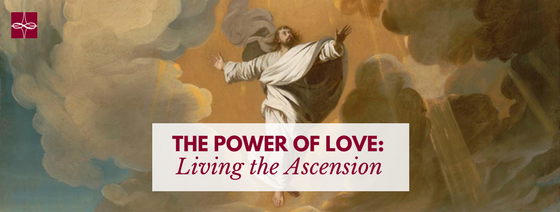



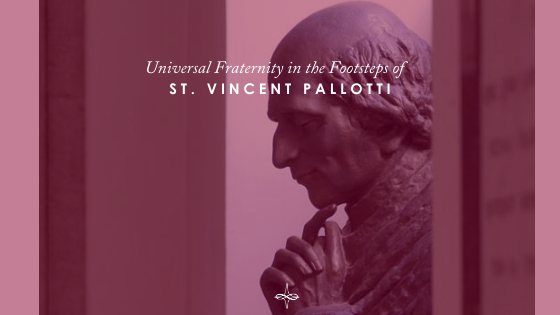

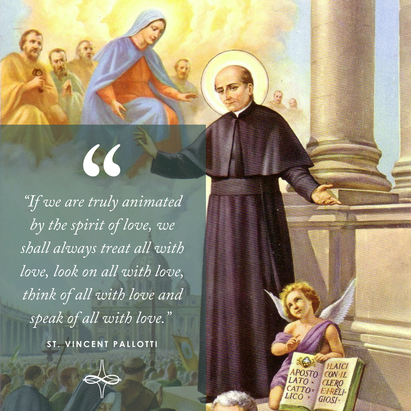
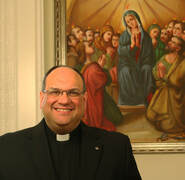
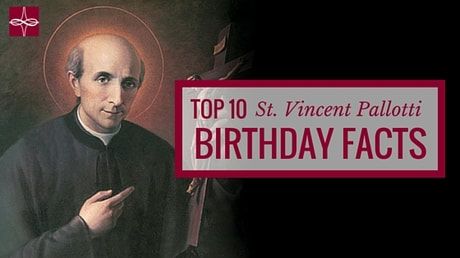

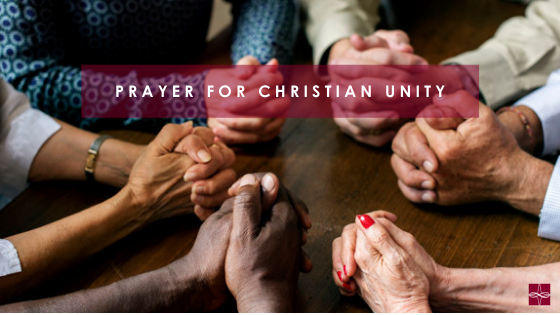
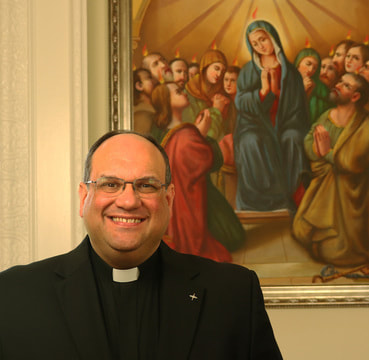
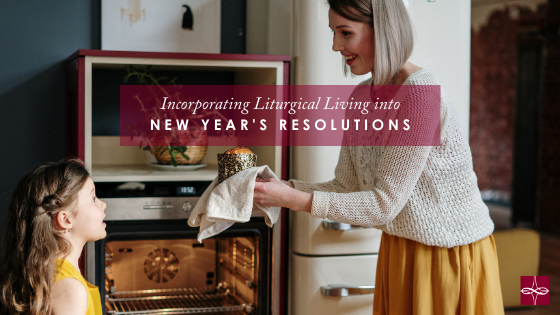

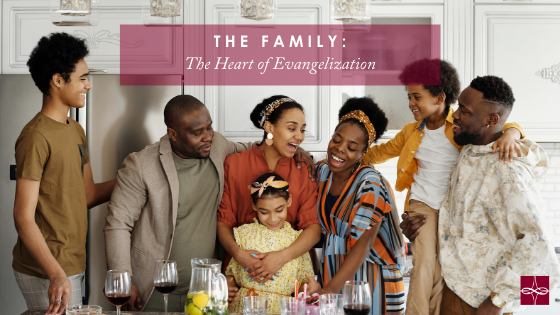

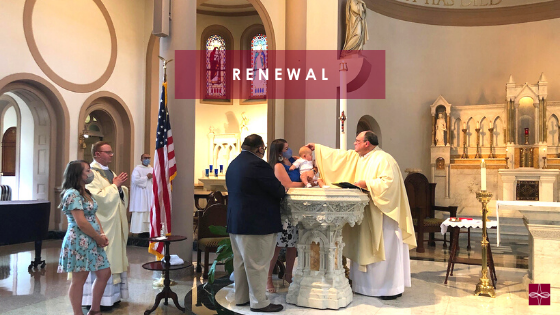

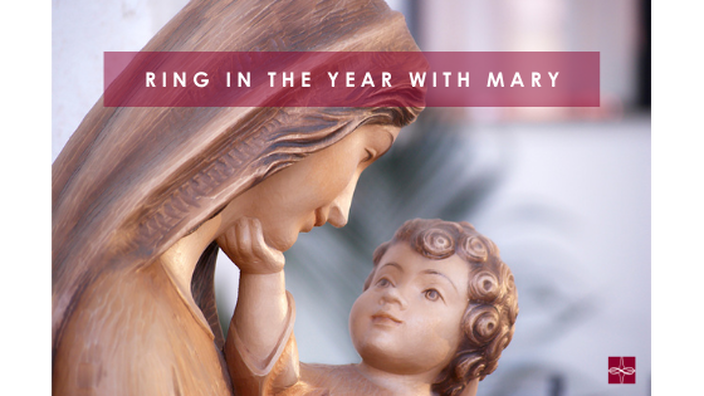

 RSS Feed
RSS Feed